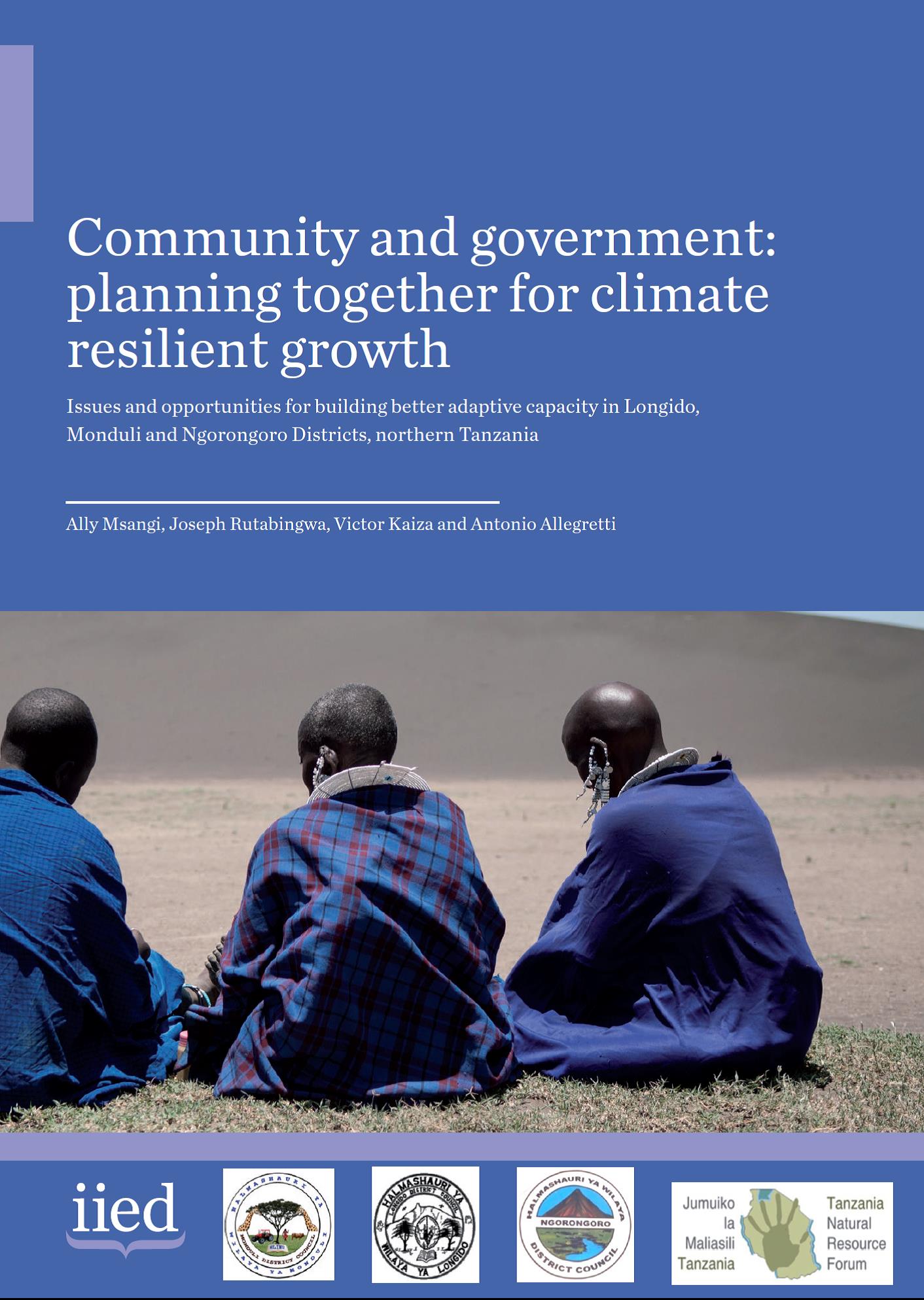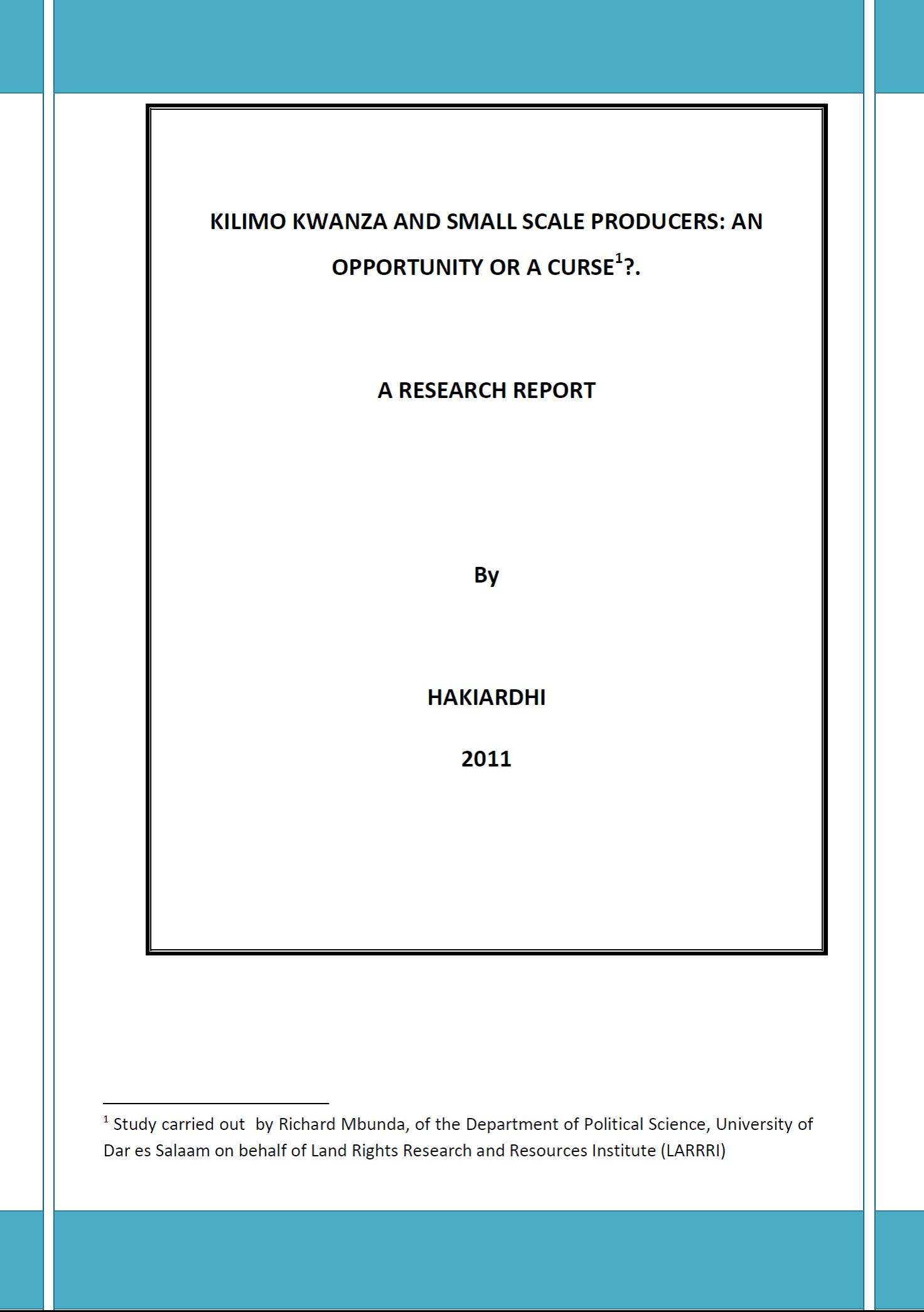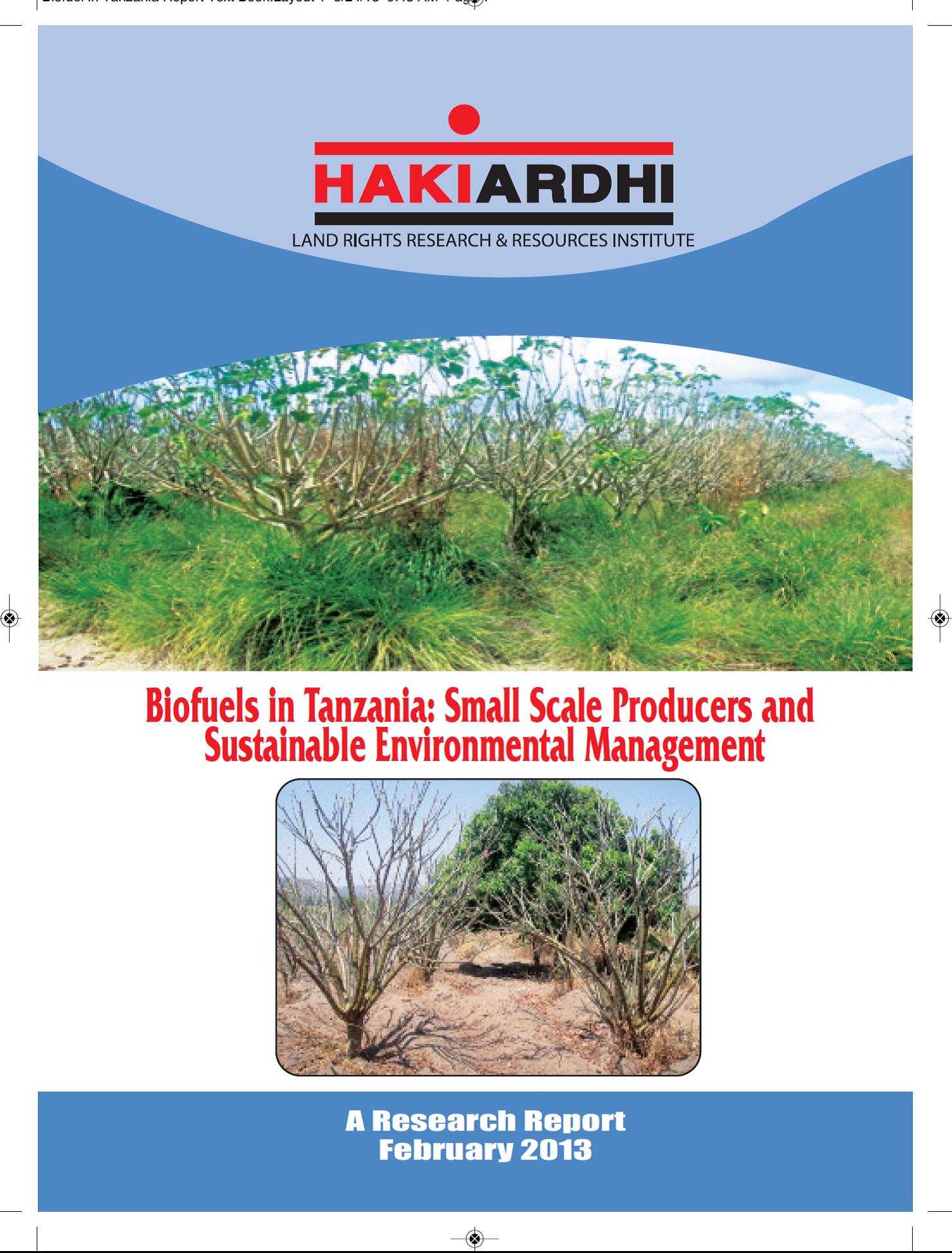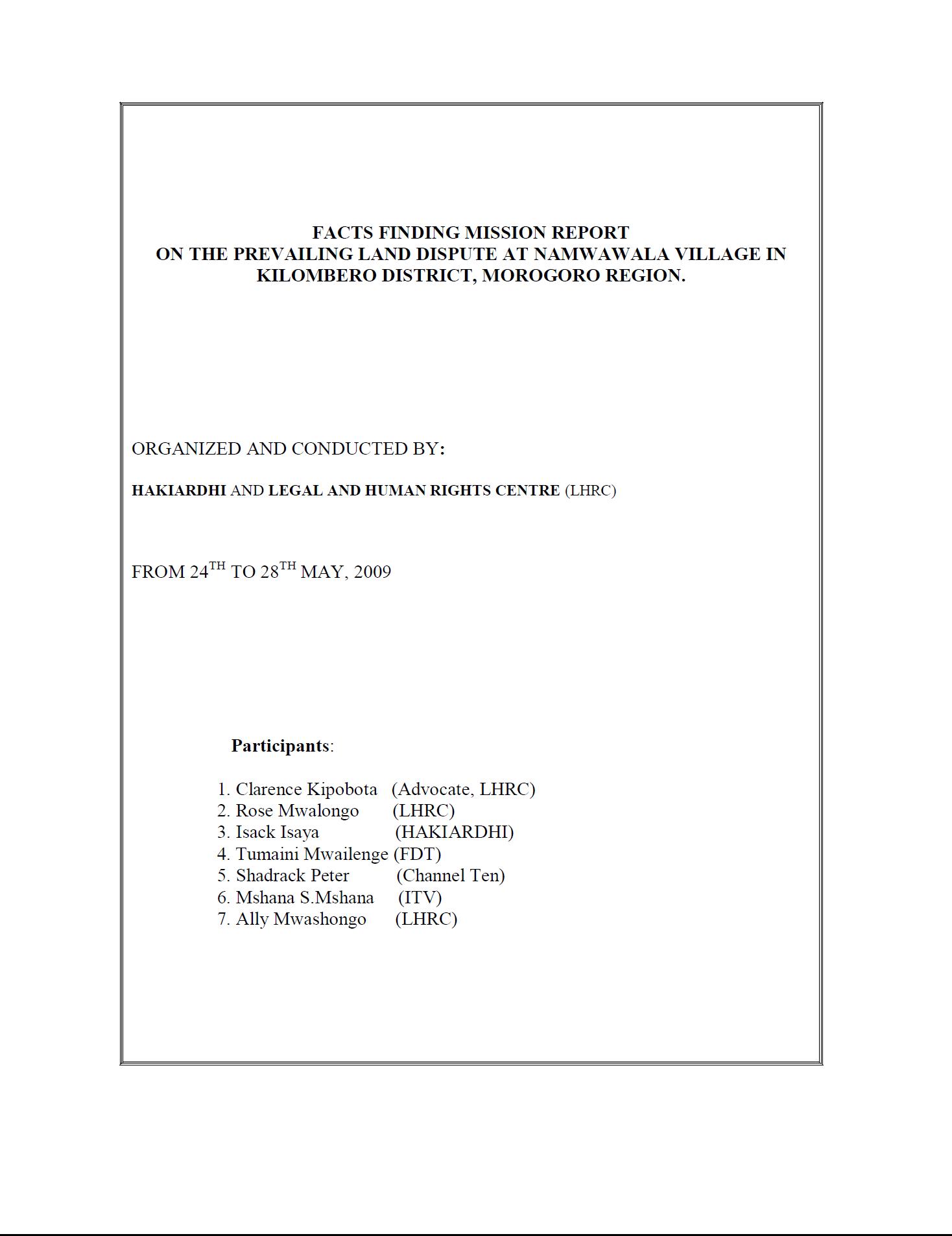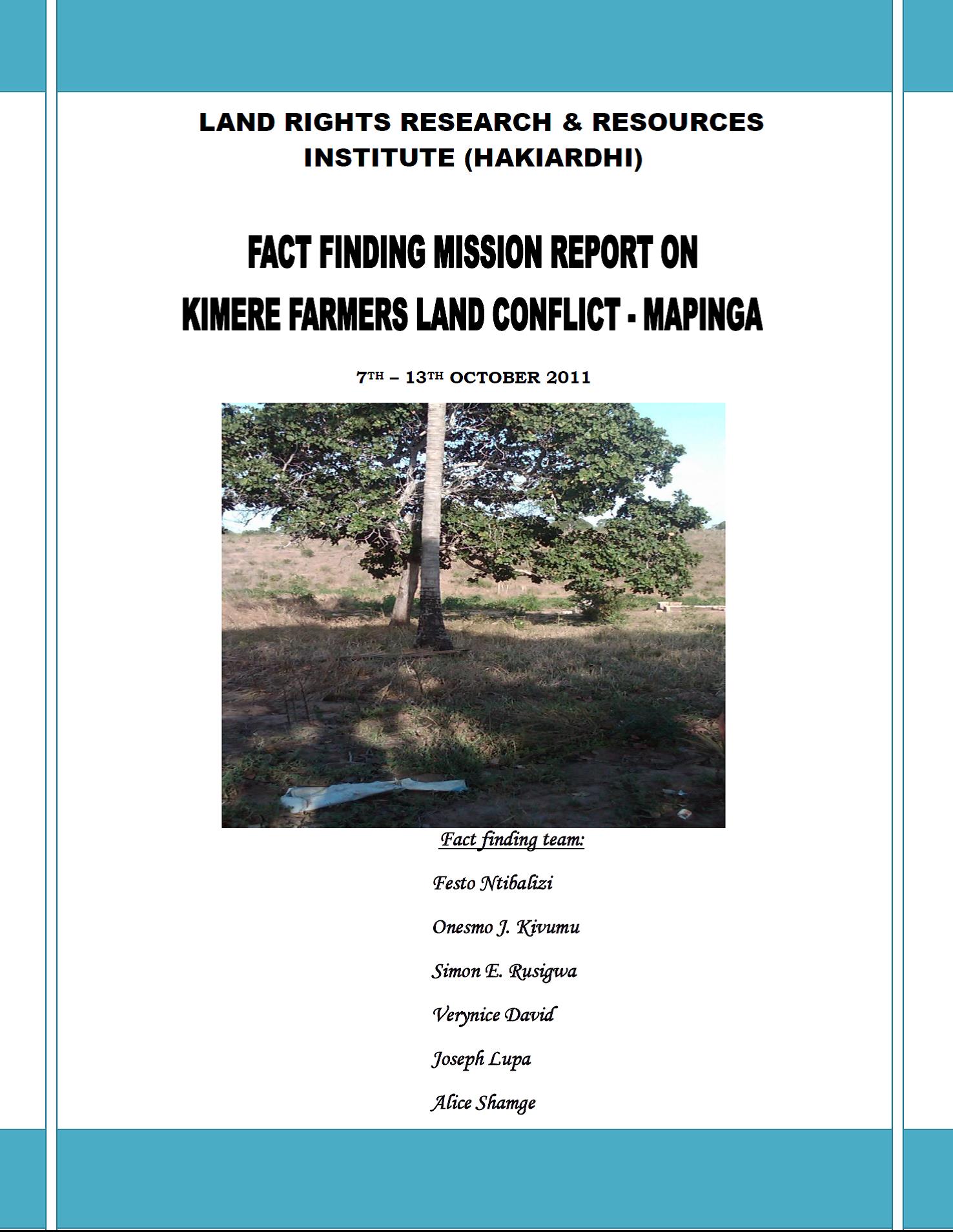Community and government: planning together for climate resilient growth
Planning for climate resilience growth is increasingly important for the natural resource dependent economy of Tanzania. Central government does not have the knowledge, reach, skills or resources needed to plan for the range of livelihoods within Tanzania; but local governments, if granted the authority and resources, could plan with communities in the flexible, timely and appropriate manner that climate variability demands.

